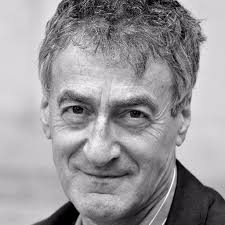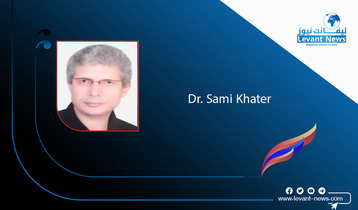-
Auf Wiedersehen Mutti Merkel

Mutti (Mummy), as she is widely known, is most likely facing weeks if not months, of negotiations between the Social Democrats (SPD) and its potential partners. Merkel’s successor, the uninspiring Armin Laschet, performed far worse than the more competent SPD leader Olaf Scholz, finance minister in her government.
Her own CDU/CSU result was the worst in its history – just 24.1% of the vote. Still, the SPD secured only 25.7%. But it gained support in every part of former East Germany, including winning Merkel’s own seat on the Baltic.
That means that right now the sole certainty is that, for the first time since the 1950s, Germany will be eventually end up being governed by a three-party coalition, including the Greens (who performed impressively well), ending the traditional CDU/SPD duopoly in national politics in Berlin. Given the CDU/CSU’s dominance of postwar German politics, reinforced after reunification under Kohl in 1990, this rejection is really remarkable.
Mutti, now a caretaker, is on her way out, whatever the final outcome of the inter-party talks. Merkel is strikingly different from other western leaders, especially Brexiteer Boris Johnson and Donald Trump, who she detested. Germany’s chancellor has seen many colleagues come and go, including four French presidents, five British prime ministers and eight Italian premiers. Of course she has her critics – at home in particular, as ever, especially of her handling of the economic crisis back in 2008.
Before winning the top job in 2005 she campaigned as a “chancellor of change” to make Germany more modern, seeking deeper economic reforms and a more socially liberal approach than her centre-right party had previously advocated.
Yet Merkel, both at home and abroad, is generally seen as serious, pragmatic, a modest and cautious leader who never prioritized acclaim and was above all committed to building consensus around fact and science-based policy decisions. She has long been praised for her firmness and diligence. Merkel “beats her breast from time to time, but she does not boast,” as the British journalist John Kampfner has written. “Yet she has outlasted all her European and Western peers. And her place in history will be far more distinguished than most”.
For all her steadiness, Merkel’s long years in the Bundeskanzleramt have not lacked challenges. She led her country through the financial crash of 2008, the euro debt crisis that followed, threats from Greece to leave EU, the migration crisis of 2015, and course the Covid pandemic. On a positive note she welcomed Syrian refugees. She brokered a fragile truce between Russia and Ukraine, helped to negotiate Brexit and saw Trump come and go.
Overall she is judged to have neutralised crises, but without quite resolving them. The historian Timothy Garton Ash has described her style as “sins of omission”- avoiding difficult strategic choices. Even a senior ally characterized her unflatteringly as an “anchor of stability in stormy times.”
But her conciliatory approach to Russia, particularly over the controversial Nord Stream 2 gas pipeline, looks ever more untenable as Vladimir Putin ruthlessly consolidates his control. Merkel’s over-indulgent attitude to Hungary and Poland has also been widely criticized, as has her complacency. Still, Mutti has uniquely decided to become the first Chancellor to step down.
Key questions for her successor – whoever that turns out to be – will have no choice but to determine the EU’s future course. Germany is Europe’s pre-eminent powerhouse, its wealthiest economy, with the most votes and the biggest checkbook. Global questions that really matter include: how will Brussels cope with the increasingly bitter rivalry between the US and China, especially given the importance of Beijing for German exports. To what extent will it embark on a more autonomous European defence strategy alongside Nato? Another difficult issue will be responding to calls for greater fiscal integration in the eurozone.
Given the nature of the domestic challenges facing the next government – from tackling under-investment in digital infrastructure and other areas to financing a fair green transition: the floods in July, in which over 200 people lost their lives, were a sad but vivid reminder that Germans will not be spared the perils of climate change. Over-dependence on coal and Russian gas will also need to be reduced. And how will the new coalition combat the rise of the populist far-right, although the AfD did not perform well in the elections? In the wake of Germany’s 20th century history that is a hyper-sensitive subject, for obvious reasons.
Germany may well be Europe’s biggest power, but international issues and the future of the EU were barely mentioned during the campaign. If he does end up in the Bundeskanzleramt in Berlin, Olaf Scholz will clearly have his work cut out on those two important fronts as well.
by: IAN BLACk

You May Also Like
Popular Posts
Caricature
BENEFIT Sponsors BuildHer...
- April 23, 2025
BENEFIT, the Kingdom’s innovator and leading company in Fintech and electronic financial transactions service, has sponsored the BuildHer CityHack 2025 Hackathon, a two-day event spearheaded by the College of Engineering and Technology at the Royal University for Women (RUW).
Aimed at secondary school students, the event brought together a distinguished group of academic professionals and technology experts to mentor and inspire young participants.
More than 100 high school students from across the Kingdom of Bahrain took part in the hackathon, which featured an intensive programme of training workshops and hands-on sessions. These activities were tailored to enhance participants’ critical thinking, collaborative problem-solving, and team-building capabilities, while also encouraging the development of practical and sustainable solutions to contemporary challenges using modern technological tools.
BENEFIT’s Chief Executive Mr. Abdulwahed AlJanahi, commented: “Our support for this educational hackathon reflects our long-term strategic vision to nurture the talents of emerging national youth and empower the next generation of accomplished female leaders in technology. By fostering creativity and innovation, we aim to contribute meaningfully to Bahrain’s comprehensive development goals and align with the aspirations outlined in the Kingdom’s Vision 2030—an ambition in which BENEFIT plays a central role.”
Professor Riyadh Yousif Hamzah, President of the Royal University for Women, commented: “This initiative reflects our commitment to advancing women in STEM fields. We're cultivating a generation of creative, solution-driven female leaders who will drive national development. Our partnership with BENEFIT exemplifies the powerful synergy between academia and private sector in supporting educational innovation.”
Hanan Abdulla Hasan, Senior Manager, PR & Communication at BENEFIT, said: “We are honoured to collaborate with RUW in supporting this remarkable technology-focused event. It highlights our commitment to social responsibility, and our ongoing efforts to enhance the digital and innovation capabilities of young Bahraini women and foster their ability to harness technological tools in the service of a smarter, more sustainable future.”
For his part, Dr. Humam ElAgha, Acting Dean of the College of Engineering and Technology at the University, said: “BuildHer CityHack 2025 embodies our hands-on approach to education. By tackling real-world problems through creative thinking and sustainable solutions, we're preparing women to thrive in the knowledge economy – a cornerstone of the University's vision.”
opinion
Report
ads
Newsletter
Subscribe to our mailing list to get the new updates!






















